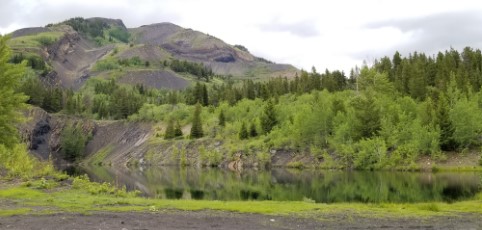Feds give thumb’s down to Grassy Mountain met coal project


Following a rejection of the Grassy Mountain metallurgical coal project in Alberta by a joint review panel last month, Benga Mining has now received a second “no” – this one from the federal government.
In a decision released on Friday, Jonathan Wilkinson, Canada's Minister of Environment and Climate Change, said that a review of all relevant information, including the joint panel's June 17 report, showed that the project is likely to cause significant adverse environmental effects that are "not justified in the circumstances."
They include negative impacts on: surface water quality, including from selenium effluent discharge; the Westslope Cutthroat Trout, classified as a threatened species; the endangered Whitebark Pine; and the physical and cultural heritage of the Kainai, Piikani and Siksika First Nations.
The minister also concluded the project would likely contribute to significant negative cumulative effects on both species listed above as well as the little brown bat, and on the First Nations' use of land and resources for traditional purposes.
Benga, a subsidiary of Australia-based Riversdale Resources, wants to invest $800 million to build an open pit operation at Grassy Mountain with a 23-year mine life.
It announced last month that it would appeal the decision of the joint panel, composed of the Alberta Energy regulator and the Impact Assessment Agency of Canada.
The project, located near the Crowsnest Pass area in southwest Alberta, has attracted both support for the economic activity it would generate and opposition from environmental groups.
In addition to Benga, two First Nations that support the development, the Piikani and Stoney Nakoda communities, have filed requests to appeal the panel's decision.
Benga says almost 25% of the project sits on previously mined land that was never properly restored.
Alberta recently reinstated its 1976 coal policy restricting development in some areas of the Rocky Mountains and prohibiting it in others, following a public outcry. That decision did not affect Grassy Mountain.
For more information, visit www.rivresources.com.
Comments